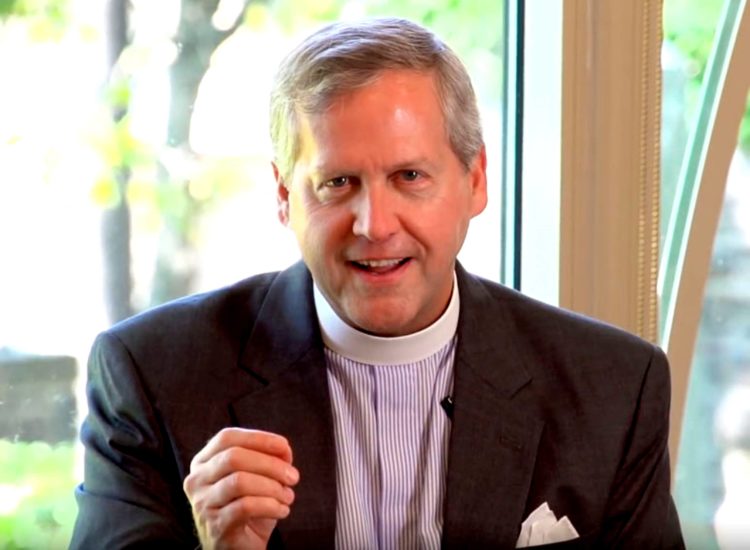
By Marek Zabriskie
It’s tempting for each of us to believe that we are in this world alone. We are tempted to think that there is no God, or if there is a God who created the universe then God has too much to focus on our personal problems.
The great Russian writer Leo Tolstoy wrote, “In order to change the nature of things, either within yourself or in others, one should change, not the events, but those thoughts which created those events.” Tolstoy was merely echoing what Jesus did and said.
Let me illustrate this by telling two brief stories of two people whose last name was Eliot, both of whom lived in the 19th century. One exhibited the sin of cynicism and other the gift of hope, and it made all the difference.
The first Eliot was Charles Eliot, President of Harvard University. He came from a prestigious East Coast family that looked down on uneducated people, especially people living on the West Coast. So, he was upset one day in 1884 when he learned that his secretary had made an appointment for a couple from California to meet with him.
When they arrived at his office, all of his prejudices were confirmed. They were simply dressed. There was nothing distinguished about them. They sat down and explained that their only child, a son, had died of typhoid in Florence during the summer while traveling in Europe. This young man had dreamed of attending Harvard.
As a result, his parents wanted to do something special to honor his life. They asked President Eliot if Harvard needed a new building. This confirmed Charles Eliot’s prejudices. He replied, “Property values are so much more expensive in Boston than in California. Why don’t you do something within your means and put up a plaque in one of our buildings to honor of your son. One of our deans will be glad to help you.”
Then he stood up indicating that their meeting was over. As they were about to leave, the wife turned to President Eliot and asked, “How much would it cost to duplicate a school like Harvard on the West Coast?”
President Eliot was aghast. He said, “It would cost millions and million dollars, which is surely beyond your means.” So, you can imagine his shock a year later when he read the following year that a couple named Leland and Jane Stanford gave $40 million (or the equivalent of over $1.1 billion dollars today) to the State of California to found a university where students could study free of charge. This, of course, became Stanford University, one of Harvard’s chief competitors.
Charles Eliot had a clear plan for Harvard, but he wasn’t able to see the dream that God was orchestrating in his very office with two simply dressed individuals. Eliot suffered from the sin of cynicism, which is to underestimate what God can do with simple things, for God’s dreams often begin with something small and always exceed all of our expectations.
Let me contrast this story with that of another Eliot from the 19th century. This was a woman named Mary Ann Evans, who wrote seven novels under the pen name of George Eliot. One of her novels was called Silas Mariner. It is a tale of a linen weaver, who lived in the outskirts of rural village in England.
He had little contact with his neighbors, because fifteen years earlier he had been falsely accused of stealing money from his church. Then his best friend fell in love with his fiancé, and she married him, leaving Silas feeling jilted and deeply betrayed.
In a short span of time, Silas lost his faith in God and in his fellow human beings. So, he poured himself into his work and focused solely on earning money. He had no interest in spending his wealth. He hoarded the gold coins that he collected, and he carefully hid his treasure by the fireplace.
One foggy night, while Silas was away, someone broke into his cottage and stole the two bags of gold coins. When word spread, his neighbors came to console him and said, “Perhaps we can help you to find what you have lost.” For the first time in years, he was touched by the kindness of others. The act of their human warmth melted the coldness that had surrounded Silas’s heart.
Each night, he stood at the door of his cottage looking out to see if someone might be coming to bring news of his lost treasure. Then one night someone finally did come, but it was not what he expected.
A two-year-old girl stumbled through the snow. She walked right past him and into his cottage and lay down to sleep in the very spot where he had once hidden his gold. Silas let her sleep as he went outside in search of her mother.
He had not walked far when he found her found her frozen to death in a snowbank. She had been addicted to opium, which had led to her death. The child, who had been at her side when she died, simply stumbled in the snow toward the first place where she saw a light shining.
Silas returned to his house and found the little girl asleep. He leaned down to the same spot where his gold had once been hidden and touched her golden locks, and as he did something awoke deep within him that had long ago died.
Silas eventually adopted the girl and raised her as his own, and she in her own way resurrected him. The solitary weaver and miser became a human being once again all because a little child had entered his life by surprise.
Tolstoy was right. In order to change the nature of things, either within ourselves or in others, we should change, not the events, but the thoughts which created those events. Jesus was constantly urging his followers to see life through the miraculous lens with which God views reality. When we do this, cynicism disappears and hope becomes a possibility.
The Rev. Marek P. Zabriskie is the Rector of Christ Church Greenwich




